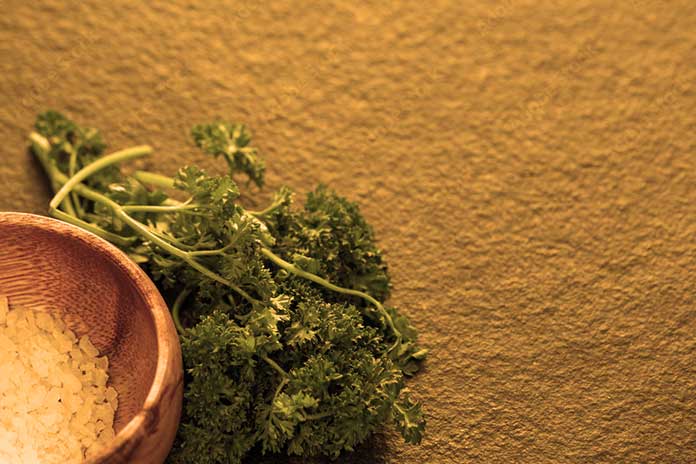Loved by some and hated by others, coriander is an herb widely used as a spice, with numerous beneficial properties for our health.
Whether through its leaves or seeds, coriander’s peculiar and delicious aroma gives an exceptional flavor to any dish. In addition to not being fattening, it brings a series of benefits to our bodies.
Source Of Antioxidants
Coriander is rich in antioxidants, which are molecules that limit the oxidation of other molecules in our body, helping to prevent risks associated with the heart. Antioxidants are also helpful in reducing the risk of developing neurological diseases such as Alzheimer’s and Parkinson’s.
Source Of Minerals And Vitamins
Coriander is rich in minerals and vitamins essential for maintaining our bodies. It is rich in iron, magnesium, and vitamins A, B, and C, which makes it effective in controlling hemoglobin levels, properly functioning our nervous system, and strengthening bones.
The Benefits Of Sea Salt
Nothing like a sea bath on an extended holiday to renew your energies, huh? Many think that the feeling of relaxation provided by bathing in the sea comes from the sunny climate or the lack of professional commitments during a stay on the coast, but in fact, the one who fights a lot of stress and bad mood is sea salt.
Benefits Of Bathing In Sea Salt
Many say that salt is a powerful element to discharge negative energies from the body, and this belief is scientifically proven. Ocean water has more than 80 chemical elements that bring several benefits: skin revitalization, muscle pain relief, and even lymphatic drainage, as the waves massage the body and stimulate blood circulation and oxygenation of cells. Sea salt also has healing and antiseptic powers, as the sodium present in it eliminates toxins from the body and even helps relieve arthritis symptoms.
Sea Salt In Food
Sea salt has also gained the spotlight for being part of the new fitness wave and the most significant focus on food in recent years. Although it is also made up of sodium chloride, sea salt does not go through processing like regular table salt, and many believe that sea salt is better than refined salt.
Benefits Of Eating Sea Salt
It Has Less Sodium Than Refined Salt
Those who are used to consuming salt by volume (a pinch, half a spoon, etc.) may consume less sodium than usual. For example, if a spoon of pink Himalayan salt contains less salt than conventional salt, it is possible to end the day with lower consumption of the mineral.
Just be careful not to add too much salt to the dishes since sea salt is less “salty” than refined salt (the latter is more concentrated).
It Favors Kidney Health
Consuming almost 2x more salt than the World Health Organization recommended. As a result, problems such as kidney failure and kidney stones become increasingly common.
With a lower sodium content, sea salt is a better option to maintain electrolyte balance without overloading the kidneys.
Regulates Blood Glucose Levels
Sodium facilitates glucose absorption by cells, which contributes to maintaining adequate blood sugar levels and reduces the need for insulin.
With that in mind, salt (in a small amount) is an ally for those at high risk or who suffer from diabetes.
It Is An Ally Of The Skin
Sea salt also serves to improve the health of the skin. A bath with natural salt can help improve everything from simple conditions like dry skin and itchiness to more severe conditions like psoriasis and eczema.
And as it opens the pores, the sea salt bath improves blood circulation in the skin and rehydrates the tissue, favoring the aesthetic part and helping it heal.
It Is An Ally Of Weight Loss
This is one of the benefits of sea salt that few people know about. In excess, sodium promotes fluid retention and can cause a perception of weight gain.
However, a moderate amount of the mineral can have the opposite effect since many of the minerals in sea salt participate in the composition of gastric juices. A properly functioning digestive system prevents food from accumulating in the intestine – a problem that can cause inflammation and make it easier for you to accumulate extra pounds.
In addition, the cells of the intestinal wall need salt to be able to absorb better the nutrients we ingest through food.

